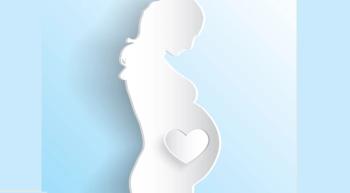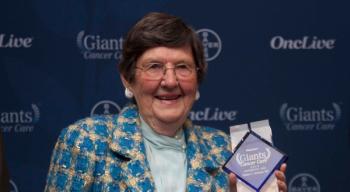
A little focus on intentions for the week can help fight off cancer blues and allow more time for taking care of yourself.

A little focus on intentions for the week can help fight off cancer blues and allow more time for taking care of yourself.

Two-time cancer survivor discusses the art of waiting, be it for treatments, rechecks or test results.

It's sometimes easy to think that our bodies have failed us, but we need all the help we can get.

Knowing that my sister gained remission gives me an immense bias, but ask the question, “Good or bad?” now and my answer may just be, “hard to tell.”

Many people don't realize they are putting pressure on those walking though cancer to keep a good attitude. There are days we all need to be able to acknowledge that it can be difficult.

January is Cervical Health Awareness Month. Learn how women with cervical cancer can manage potential fertility concerns.

A recurrence is always a possibility for any victim of cancer, but should survivors expect a recurrence? If so, how can they prepare for that possibility?

A male breast cancer survivor offers some alternatives to stress.

"Breathe in God, breathe out cancer," I prayed with as much conviction as I could muster.

With wit and wisdom, Carolyn Choate recounts the resilience of cancer survivors everywhere to outwit the enemy within.

Parts of the Northeast had a foot or more of snow last week. What should patients do when their scheduled cancer treatment falls in the middle of a snow storm?

In the movie, Charlie Brown was asked what his New Year’s resolution was. With typical candor, he answered that instead of dreading the whole year he was dreading only one day at a time.

You wouldn't keep an annoying friend around. Think of fear the same way.

Any thought about the future was initially difficult to manage, but I soon realized I was not going to waste any time I had left in my life and made it a mission to enjoy life with greater depth.

Breast cancer survivor shares her dance on the risk continuum of the chemicals in our lives.

Holland, who worked until the end of her life in the field she was largely responsible for founding, had served, since 1989, as the Wayne E. Chapman Chair in Psychiatric Oncology at Memorial Sloan Kettering Cancer Center (MSK), in New York.

Don't be ashamed that you haven't "moved on," says this metastatic breast cancer patient.

Breast cancer and melanoma survivor reflects about being tired of her cancers and shares a way to respond to uncertainty.

"Getting on" with life after a spouse dies is not easy. Forgiving cancer for its domino effect is even harder.

Life-saving medical care can leave scars that don't show on the outside, but last a lifetime.

Some cancer survivors are good at getting on with life. Some of us remain timid about the prospect of life, even when a prognosis is good. A new year is a good time to try harder to seize the day, whatever the future is likely to bring.

Throughout our cancer journey there will be many losses. There will also be some gifts. Focusing on the gifts in times of sadness may help us process pain.

One caregiver grapples with the consequences of her sister's terminal cancer diagnosis.

A cancer caregiver reflects on a time when all seemed lost.

Remission may put an end to the disease, but it does not always stop the feeling of being lost.

Christmas can be a real challenge when going through cancer. Aside from the financial burden that may limit the number of boxes under the tree, the emotional burden can dampen what is usually a happy and cheerful time of year.

My sister was told about hair loss many times at the beginning of treatment, but the magnitude of being bald didn't hit her until the hair started coming out.

While patients with chronic lymphocytic leukemia (CLL) tend to have long life expectancies, with many prescribed to a “watch-and-wait” approach, a recent study by the Cancer Support Community (CSC) found that more than half of patients living with the disease reported that having CLL affects their viewpoints regarding their life expectancy.

Not all employees with cancer get paid leave, but those who did saw better health and financial outcomes.

Of course, there was sadness, but more than anything there was appreciation for my own life and the people close to me. I feel gratitude for still being here, having an excellent quality of life and for the warning cancer gives.